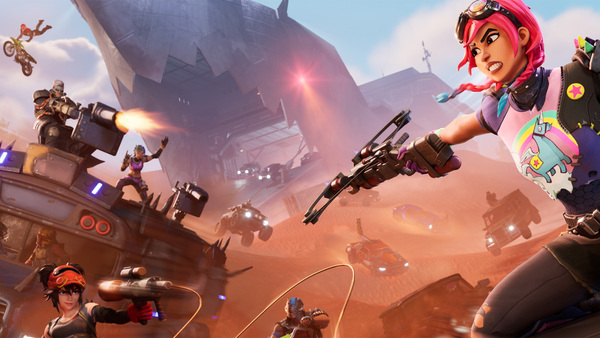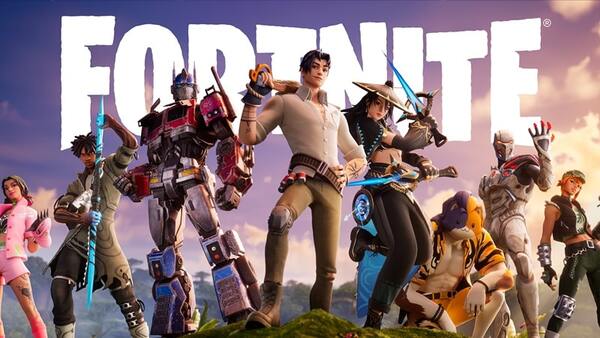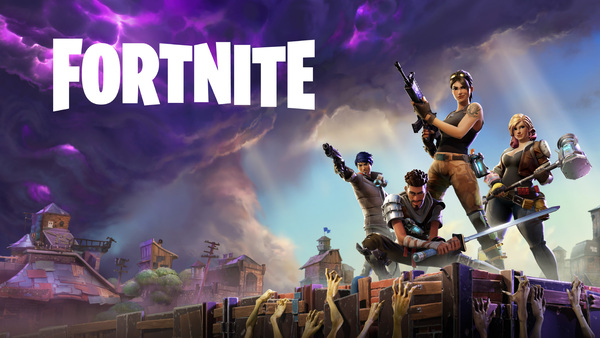Fortnite has revolutionized the battle royale genre with its dynamic gameplay, creative mechanics, and evolving content. However, one of the most polarizing issues in the game remains its Random Number Generator (RNG) system, particularly in loot distribution. RNG refers to the element of randomness in determining outcomes, such as the weapons and resources players find during a match.
While RNG introduces unpredictability and excitement, it also leads to frustration for players who feel that success often hinges more on luck than on skill. This article explores the impact of loot RNG on Fortnite’s gameplay, its consequences for casual and competitive players, and potential solutions to create a more balanced experience.
The Basics of Loot RNG
How Loot RNG Works
Loot RNG in Fortnite determines the type, rarity, and location of items found in chests, supply drops, and on the ground. This randomness ensures no two matches are the same, contributing to the game’s replayability.
The Role of Loot Pools
Epic Games organizes loot into “pools,” with different weapons and items assigned varying probabilities of spawning. While this system allows developers to influence loot distribution, it doesn’t eliminate the inherent randomness players encounter.
Advantages of Loot RNG
Unpredictability Keeps Things Fresh
RNG ensures that each match presents a unique challenge, forcing players to adapt to their loadouts and surroundings. This unpredictability adds excitement and variability to the game.
Leveling the Playing Field
For casual players, RNG can provide an advantage over highly skilled opponents. A well-timed Legendary weapon drop can turn the tide of a battle, giving underdogs a fighting chance.
The Drawbacks of Loot RNG
Skill vs. Luck
One of the primary criticisms of RNG is its ability to overshadow skill. A player might land at a hot drop, search multiple chests, and end up with subpar weapons, while an opponent finds top-tier gear in their first chest.
Inconsistencies in Competitive Play
In Fortnite’s competitive scene, RNG often becomes a contentious issue. Players dedicate countless hours to refining their skills, only to lose matches due to unfavorable loot. This can undermine the integrity of tournaments and esports events.
The Impact of RNG on Early Game Encounters
Unequal Start
The opening moments of a match are often defined by RNG. Players landing in the same area can have vastly different outcomes depending on the loot they find. This disparity can lead to early eliminations that feel unfair.
High-Risk, High-Reward Drops
Landing at popular locations like Tilted Towers or Mega City often amplifies the effects of RNG. While these areas promise abundant loot, players gamble on whether they’ll find the gear necessary to survive the initial chaos.
RNG in Competitive Fortnite
Tournament Woes
In competitive Fortnite, RNG’s role becomes even more pronounced. A poor loot roll can ruin a player’s entire tournament run, regardless of their skill level or strategy.
Mitigation Strategies
To reduce RNG’s impact, competitive players often rely on strategies like uncontested drops and thorough route planning. However, these measures only partially offset the randomness of loot distribution.
The Psychological Toll of RNG
Frustration Among Players
Repeatedly losing due to bad loot can lead to frustration and burnout. Players often express their dissatisfaction on social media, calling for changes to the loot system.
Perceived Fairness
The perception of fairness is crucial for player retention. When RNG feels too influential, players may feel their efforts are undervalued, leading to dissatisfaction.
Proposed Solutions to RNG Issues
Weighted Loot Systems
Implementing a weighted system that increases the likelihood of finding higher-tier items as the match progresses could reduce frustration without eliminating randomness.
Guaranteed Basic Loadouts
Introducing a guaranteed basic loadout for all players, such as a common weapon and some shields, could level the playing field in the early game.
Competitive-Specific Loot Pools
Creating distinct loot pools for competitive modes can help minimize RNG’s impact in high-stakes environments.
How RNG Affects Different Player Types
Casual Players
For casual players, RNG can be a double-edged sword. While it adds unpredictability and excitement, it can also lead to demoralizing matches where luck feels stacked against them.
Hardcore Players
For hardcore and competitive players, RNG often feels like an unnecessary obstacle. These players prioritize skill and strategy, and the randomness of loot can clash with their expectations of fair competition.
The Future of Loot RNG in Fortnite
Balancing Luck and Skill
As Fortnite continues to evolve, Epic Games faces the challenge of maintaining the delicate balance between RNG and skill-based gameplay. Striking this balance is key to satisfying its diverse player base.
Experimenting with Solutions
Future updates may experiment with innovative loot systems, drawing on community feedback to refine the balance between randomness and strategy.
Conclusion
Loot RNG in Fortnite is both a blessing and a curse. While it adds excitement and variety, it also creates frustrations for players who feel that luck often overshadows skill. By exploring solutions like weighted loot systems, guaranteed loadouts, and competitive-specific loot pools, Epic Games can address these concerns and create a more balanced experience. In doing so, Fortnite can continue to thrive as a dynamic and engaging game for players of all skill levels.






















